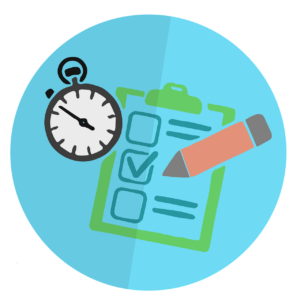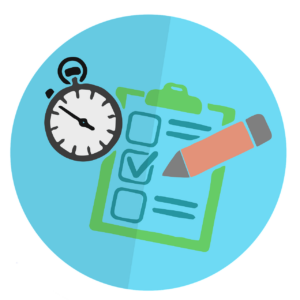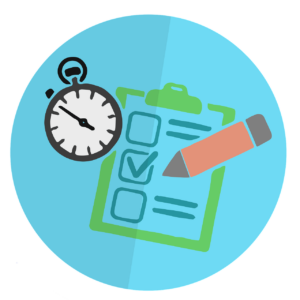Are you preparing to take the Nursing Home Administrator Exam? As a future administrator, you will be responsible for managing and leading a team of healthcare professionals, ensuring financial stability, and providing quality care to residents.
The exam is designed to test your knowledge and skills in these areas, as well as legal and ethical issues that may arise in the nursing home setting.
To help you prepare for the exam, this article will provide a comprehensive review of sample questions in each of these areas. You will gain a better understanding of what to expect on the exam and how to approach each section.
Additionally, we will provide exam preparation tips to help you feel confident and ready on test day. So, let’s dive in and get started on your journey to becoming a licensed Nursing Home Administrator.
Key Takeaways
- The Nursing Home Administrator Exam tests knowledge in management, finance, and resident care and is necessary to obtain a license to practice as a nursing home administrator.
- Proper staffing levels, facility design and safety protocols, budgeting, and financial planning are crucial for the success of nursing homes and the well-being of residents and staff.
- Legal and ethical issues are covered in the exam, and understanding reimbursement and billing guidelines and regulations is important for compliance.
- Effective exam preparation techniques involve continuous improvement, prioritizing areas that need more review, and utilizing study schedules, flashcards, practice exams, or study groups.
Overview of the Nursing Home Administrator Exam
You’re going to want to know all about the Nursing Home Administrator Exam, and lucky for you, we’ve got an overview right here!
As a nursing home administrator, your role is vital in ensuring the safety and well-being of residents in long-term care facilities. The Nursing Home Administrator Exam is designed to test your knowledge and skills in areas such as finance, human resources, and resident care.
To be eligible for the exam, you must have a bachelor’s degree in a healthcare-related field and at least two years of experience in a long-term care setting. The exam itself consists of 150 multiple-choice questions and is administered over a four-hour period.
It covers topics such as leadership, ethics, and regulatory compliance. Passing the exam is necessary to obtain a license to practice as a nursing home administrator.
So, make sure to study hard and be well-prepared!
Management and Leadership
You’ll need to be well-versed in staffing and human resources, facility operations and management, and quality improvement and performance management to excel in the Management and Leadership subtopic of the Nursing Home Administrator Exam.
As a nursing home administrator, you’ll be responsible for ensuring that your facility is properly staffed with qualified professionals who can provide quality care to residents.
You’ll also need to have a solid understanding of facility operations and management, including budgeting, regulatory compliance, and risk management.
Staffing and Human Resources
Human resources are the backbone of any healthcare facility, and ensuring proper staffing levels is crucial to providing quality care for our elderly loved ones. As a nursing home administrator, it’s your responsibility to develop recruitment strategies that’ll attract the best candidates for your facility.
Here are three tips to help you find and retain the right employees:
-
Utilize social media: Social media platforms like LinkedIn, Facebook, and Twitter are great tools for reaching out to potential candidates. You can post job openings, interact with applicants, and showcase the positive aspects of your workplace culture.
-
Offer competitive benefits: Employee retention is crucial to maintaining a stable and reliable workforce. Offering competitive benefits like health insurance, retirement plans, and paid time off can make your facility stand out from the competition and keep your employees happy and motivated.
-
Develop a positive workplace culture: Creating a positive work environment is essential to retaining employees. Encourage teamwork, recognize employee achievements, and provide opportunities for growth and development. When employees feel valued and supported, they’re more likely to stay with your facility for the long term.
By implementing these strategies, you can attract and retain the best employees for your facility, which’ll ultimately lead to better care for your residents.
Facility Operations and Management
Managing a healthcare facility involves overseeing daily operations and ensuring that all aspects of the facility are running smoothly. As a nursing home administrator, it’s important to understand facility design and how it impacts the daily operations of the facility.
A well-designed facility can improve the quality of life for residents and make it easier for staff to provide care. It’s essential to regularly review the facility’s design and make necessary changes to ensure that it’s accommodating the needs of residents and staff.
Another important aspect of facility operations and management is safety protocols. As a nursing home administrator, it’s your responsibility to ensure that the facility is a safe environment for residents, staff, and visitors.
This includes having proper emergency plans in place, such as fire drills and evacuation procedures. It also means ensuring that staff are trained in proper infection control practices and that all necessary safety equipment is readily available.
By prioritizing facility design and safety protocols, you can create an environment that promotes the health and well-being of all those who enter the facility.
Quality Improvement and Performance Management
Improving the quality of care in a healthcare facility involves regularly analyzing performance data and implementing strategies to enhance patient outcomes. Continuous improvement is the key to achieving this goal.
As a nursing home administrator, you must be proactive in evaluating your facility’s performance and identifying areas that need improvement. You should establish a system for monitoring and tracking performance metrics, such as patient satisfaction, readmission rates, and clinical outcomes. This will help you identify trends and patterns that can inform your quality improvement efforts.
Performance evaluation is an essential component of quality improvement. You should establish a process for evaluating staff performance and providing feedback on areas of strength and areas that need improvement. This can include regular performance reviews, ongoing training and professional development, and opportunities for staff to provide input on facility policies and procedures.
By promoting a culture of continuous improvement and performance excellence, you can create a positive and supportive environment that fosters patient-centered care and improves outcomes for your residents. Remember that quality improvement is an ongoing process that requires commitment, dedication, and collaboration from all members of your team.
Financial Management
You’ll now be introduced to the subtopic of Financial Management, which covers three key points:
- Budgeting and Financial Planning
- Reimbursement and Billing
- Financial Reporting and Analysis
These areas are essential for nursing home administrators to understand in order to effectively manage the financial aspects of their facility. By mastering these topics, you’ll be able to ensure the financial stability and success of your nursing home.
Budgeting and Financial Planning
Budgeting and financial planning are crucial for the success of any nursing home, and they should be given the utmost priority. As a nursing home administrator, you need to ensure that your facility’s finances are in order, and you are operating within your budget.
This involves careful planning and monitoring of expenses and revenues to ensure that you are maximizing your resources and minimizing your costs. Here are some tips to help you with budgeting and financial planning:
- Conduct a thorough analysis of your facility’s financial situation to identify areas for cost containment and revenue generation.
- Create a realistic budget that takes into account all of your expenses, including salaries, supplies, equipment, and facility maintenance.
- Monitor your budget regularly to ensure that you are staying within your financial limits and making adjustments as needed.
- Look for opportunities to increase revenue, such as offering additional services or partnering with other healthcare providers.
- Seek advice from financial experts or other nursing home administrators to help you make informed decisions about your facility’s finances.
By following these tips, you can ensure that your nursing home is financially stable and successful, and you are providing the best possible care for your residents.
Reimbursement and Billing
Managing reimbursement and billing can be a complex and challenging task for any healthcare facility. As a nursing home administrator, it is your responsibility to ensure that the facility is following Medicare guidelines and Medicaid regulations when it comes to reimbursement and billing. These guidelines and regulations can change frequently, making it imperative for you to stay up-to-date with the latest updates in order to avoid any compliance issues.
One way to ensure compliance is to create a system for documenting and tracking all billing activities. This can include documenting all services provided to residents, as well as ensuring that all billing codes are accurate and up-to-date. It is also important to verify that all billing information is being submitted in a timely manner, in order to avoid any delays in payment. By staying on top of these tasks, you can help ensure that your facility is in compliance with all reimbursement and billing guidelines and regulations.
| Medicare Guidelines | Medicaid Regulations |
|---|---|
| Covers skilled nursing care, home health services, and hospice care | Covers long-term care for low-income individuals and families |
| Part A covers inpatient hospital stays and some skilled nursing care | Covers nursing home care for individuals who meet certain financial and medical criteria |
| Deductibles and co-payments may apply | No deductibles, but co-payments may apply |
| Coverage varies depending on the specific plan | Coverage varies depending on the state and the specific plan |
The table above highlights some of the key differences between Medicare guidelines and Medicaid regulations. By understanding these differences, you can ensure that your facility is providing the appropriate services to residents and billing correctly for those services. It is important to keep in mind that these guidelines and regulations are subject to change, so it is important to stay informed and adjust your billing practices accordingly.
Financial Reporting and Analysis
Now that you understand reimbursement and billing in nursing homes, let’s dive deeper into financial reporting and analysis. As an administrator, you need to be able to analyze financial statements and make strategic decisions based on the data presented.
Financial ratios are a key tool in this process, as they allow you to compare different aspects of your facility’s financial performance over time or against industry benchmarks.
Cash flow management is also critical in nursing home administration. You need to ensure that your facility has enough cash on hand to cover expenses and make investments, while also managing accounts receivable and payable.
By analyzing cash flow statements and using forecasting tools, you can make informed decisions about budgeting and investment strategies that will help your facility thrive.
By mastering financial reporting and analysis, you’ll be better equipped to make sound financial decisions that benefit both your facility and your residents.
Legal and Ethical Issues
You’ll need to be aware of the legal and ethical issues that may arise in your role as a nursing home administrator. As the leader of a healthcare facility, you’ll be responsible for ensuring that the rights of your residents are protected and that their needs are met.
This means that you’ll need to be well-versed in the legal and ethical dilemmas that can arise in this setting. To help you navigate these issues, it’s important to understand the difference between legal and ethical dilemmas.
Legal dilemmas are those that involve a violation of the law, such as neglect or abuse of a resident. Ethical dilemmas, on the other hand, involve situations where there may not be a clear right or wrong answer, but rather a conflict between different values or principles.
As a nursing home administrator, you’ll need to be able to identify and address both types of dilemmas, while also advocating for the rights of your residents and ensuring that they receive the best possible care.
Resident Care
Providing quality care for residents is essential in ensuring their overall well-being and satisfaction. As a nursing home administrator, one of your main responsibilities is to ensure that residents receive the necessary care to maintain their safety and health. This involves creating care plans for each resident, which should be tailored to their individual needs and preferences.
When developing care plans, it’s important to take into account resident safety. This means identifying potential risks and taking steps to prevent accidents or injuries. For example, if a resident has a history of falls, their care plan may include interventions such as frequent check-ins, assistance with walking, and modifications to their living space. It’s also important to regularly assess and update care plans as residents’ needs and conditions change, to ensure they are receiving the best possible care. By prioritizing resident safety and care planning, you can help create a safe and comfortable environment for residents to thrive in.
| Resident Safety | Care Planning | Emotion | ||||
|---|---|---|---|---|---|---|
| Accidents | Individualized | Fear | ||||
| Injuries | Regular Assessments | Concern | ||||
| Risk Assessment | Customization | Empathy | Emergency Preparedness | Communication | Compassion |
Exam Preparation Tips
Get ready to ace your upcoming nursing home administrator exam with these helpful tips for exam preparation! First and foremost, it’s important to develop strong study techniques that work for you. This may involve creating a study schedule, utilizing flashcards or practice exams, or finding a study group to review material with.
Whatever your preferred method, be sure to stay organized and focused on the material that will be covered on the exam. In addition to developing effective study techniques, time management is crucial when preparing for the nursing home administrator exam. Make sure to give yourself enough time to thoroughly review all of the material, while also allowing for breaks and rest periods to avoid burnout.
It may also be helpful to prioritize areas that you’re less confident in or may need more review, and allocate more time to those topics. By utilizing these exam preparation tips, you can feel confident and well-prepared to tackle the nursing home administrator exam.
Frequently Asked Questions
What is the passing score for the Nursing Home Administrator Exam?
To pass the nursing home administrator exam, you need to achieve a certain passing score. The passing score may vary depending on the exam difficulty and the state where you take the test. However, generally, you need to score at least 70% to pass the exam.
Keep in mind that this exam is not easy and requires a lot of preparation and studying. You need to have a solid understanding of all the topics covered in the exam, such as healthcare management, finance, human resources, and regulations. So, be prepared to put in a lot of effort and time to achieve a passing score.
How many questions are on the Nursing Home Administrator Exam?
To answer your question, the nursing home administrator exam consists of a total of 150 questions. These questions are divided into two parts, with the first part being a multiple-choice section and the second part consisting of written questions.
The exam format is computer-based, and you’ll have four hours to complete it. The exam content covers a variety of topics, such as human resources, finance, regulatory compliance, and resident care.
It’s important to thoroughly prepare for the exam by studying the exam content and taking practice tests to ensure that you’re adequately prepared for it.
Are there any prerequisites required before taking the Nursing Home Administrator Exam?
Before taking the Nursing Home Administrator Exam, you must meet certain eligibility requirements and fulfill specific prerequisites.
These prerequisites vary by state, but typically include a bachelor’s degree in healthcare administration or a related field, as well as a certain amount of work experience in a healthcare setting.
Additionally, some states may require you to complete a state-approved training program or pass a background check before you can take the exam.
It’s important to research the specific requirements in your state before registering for the exam to ensure that you meet all of the necessary prerequisites.
How often can the Nursing Home Administrator Exam be taken?
You can take the Nursing Home Administrator Exam as often as you want, but you have to be prepared for it. Exam preparation is crucial to pass the test, and you should invest enough time and effort to get ready.
Before taking the exam, you have to register for it, and you should make sure you meet all the requirements. Exam registration is available online, and you can find all the information you need on the official website.
If you fail the exam, you can retake it, but you have to wait for a certain period before doing so. Don’t rush into taking the exam without being fully prepared, as it can be a waste of time and money.
Is there a time limit for completing the Nursing Home Administrator Exam?
When it comes to the nursing home administrator exam, there is indeed a time limit for completing it. It’s important that you keep this in mind during your exam preparation, as you’ll need to be strategic about how you allocate your time.
The exam format will likely include a mix of multiple-choice questions and essay questions, so you’ll need to be able to think on your feet and write clearly and concisely. To ensure that you are able to complete the exam within the allotted time, it’s a good idea to practice your time management skills and work on improving your speed and accuracy when answering questions.
With the right preparation, however, you should be able to complete the exam within the time limit and pass with flying colors.
Conclusion
Congratulations on reaching the end of this comprehensive review of the Nursing Home Administrator Exam! As you prepare to take this important step in your career, it’s important to remember the key areas that will be covered on the exam.
From management and leadership to financial management, legal and ethical issues, and resident care, you’ll need to be well-versed in a wide range of topics to succeed.
Thankfully, with the right preparation and study habits, you can feel confident and well-prepared when you sit down to take the exam. By reviewing sample questions, brushing up on key concepts, and taking advantage of exam preparation tips, you’ll be able to tackle the exam with ease.
So don’t be intimidated – with hard work and dedication, you can pass the Nursing Home Administrator Exam and take the next step in your career. Good luck!





















































































































































